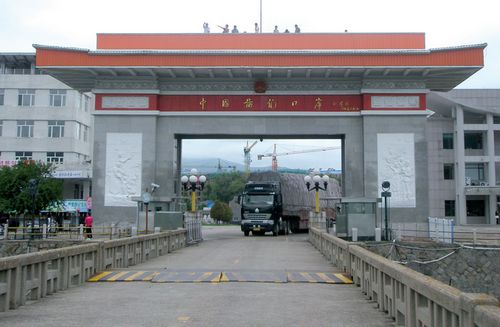Opportunities and challenges

As the manager of a seafood trading company in Dandong, a city in northeastern China's Liaoning Province on the North Korean border, Zhang Hepei knows all too well the headaches involved in doing business with an almost untapped market.
"North Korea is just like China in the 1970s," Zhang said, "not openedup and selfconstrained."
North Korea does not appear to be a paradise for entrepreneurs, given the geopolitical and domestic policy risks involved in trading with a country subject to sanctions by the UN and major economies like the US and South Korea for its nuclear programs.
Few talk openly about their business. When asked how they do business in North Korea, some instinctively connect business with politics and simply reply, "No politics please." That's what makes the difference when trading with North Koreans.
Even putting politics aside, Chinese entrepreneurs generally have a negative view of the business environment in North Korea.
The complaints are many, including the lack of reliable adjudication in disputes and the country's closed system. But Chinese businessmen are still penetrating its market and managing to make a profit.
Thriving trade
Crossborder trade between China and North Korea is thriving.
Only the Yalu River lies between Dandong and the North Korean city of Sinuiju, and along some stretches, the distance separating the two is as little as a few meters. Seventy percent of China's trade with North Korea goes through Dandong port.
Every day, cargo vessels from both sides make their way across the Yalu River. Chinese sell a range of goods – food provisions, basic lifestyle goods such as washbasins and soaps, medicines and electronic products, and North Korea mainly exports seafood and minerals.
"Generally, the Chinese export what North Koreans say they need," Zhang said.
Zhang has been trading with North Koreans for 15 years. The company he works for was set up in the late 1990s. It was a time when trade with North Korea was flourishing. The company imports processed aquatic products from North Korea and then exports the goods to South Korea and Japan. In Dandong, there are countless companies like his, according to Zhang.
The business community is unsure if Korean unification or North Korean reform looms on the horizon. Despite the business risks and political uncertainty within North Korea, the bottom line for Chinese businessmen is making a profit, Zhang Liangui, an expert on North Korea at the Party School of the CPC Central Committee, told the Global Times.
High risks
North Korea has opened a little more compared with the past. Chinese and North Korean businessmen with special entryexit permits can travel relatively freely between the two countries.
But doing business with North Koreans has become more difficult, according to Zhang Hepei.
Many North Korean companies have their own offices in China's border cities, and they have gradually grasped the way in which Chinese do business and have learned to be as "wily" as Chinese entrepreneurs.
Although all North Korean business agencies are stateowned and under the planned economy, risks normally associated with a market economy still exist.
If you go down to North Korea and invest in a factory there, they will ask you to put money into equipment and facilities that usually end up not paying back anything, and when you come back, these facilities are left there contributing to their own economy, according to Zhang.
"This was the trick that Chinese businessmen used to play on South Korean businessmen."
"Most importantly, North Koreans get to know what we Chinese are competing for in their market, so they begin to lack credibility," he said.
Another businessman in Dandong, who was unwilling to give his name, told the Global Times that North Korean border guards once deliberately manufactured a problem that resulted in his cargo ship not being able to dock and the seafood it was carrying going bad.
However, for people at the border, doing business is still more profitable than any regular office work, and North Korea remains a potential market full of business opportunities, Zhang told the Global Times.
Crossborder politics
The political uncertainty in North Korea has made border trade "unstable."
"There are North Koreans everywhere, some of whom are their intelligence people. Once you say something wrong, you may never do business with them or even go to that country," Zhang said.
Many Chinese businessmen refused to be interviewed or would only speak on condition of anonymity for this reason.
Meanwhile, even for someone like Zhang who has been doing business with North Korea for more than a decade, his movement in the country is restricted.
"We are not allowed to travel freely in North Korea. If we want to go anywhere other than hotels, our North Korean partners have to report to the authorities and we will be accompanied by someone," Zhang said. "They don't want us to communicate with ordinary people even though many of us can't speak Korean. In order to do business with them, we have to abide by their rules."
An official who works on trading in the government of the Yanbian Korea Autonomous Prefecture in northeastern China's Jilin Province, which borders North Korea, told the Global Times that as local officials, they try to promote economic cooperation because it's a good way to boost the local economy. They just want to "do more and talk less."